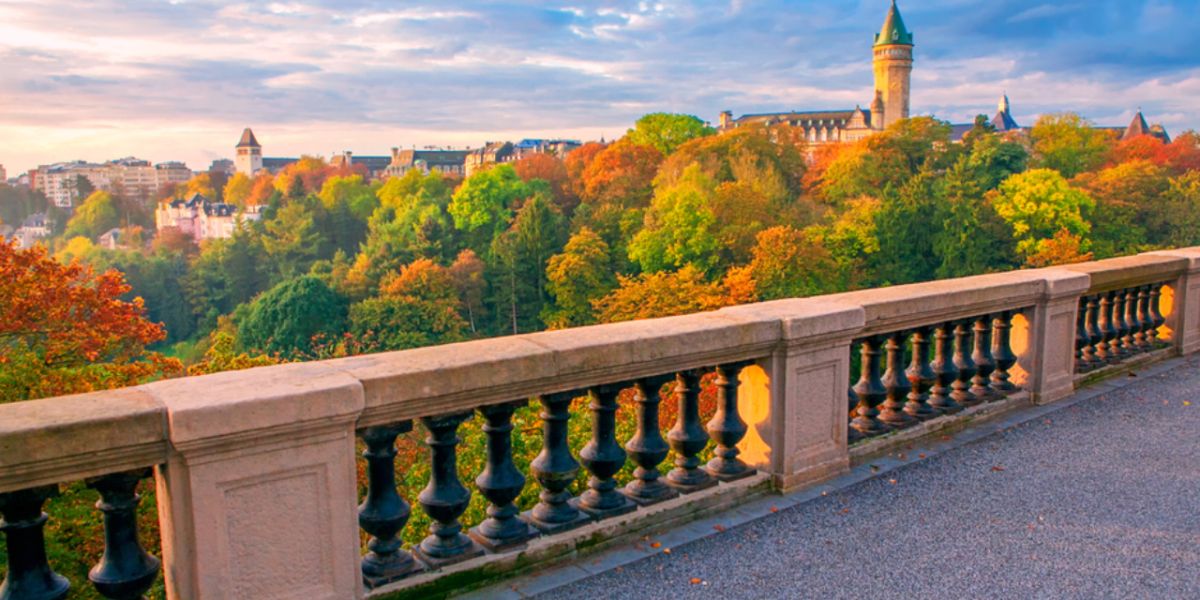
Festivals, traditions, multilingualism, international openness, and cultural richness: these are the elements that shape and bring life to Luxembourg's way of living. Whether you're planning your move, have just arrived, or are simply curious about discovering this unique country, this article offers you a glimpse into what makes daily life in Luxembourg so charming.
The pace of life in Luxembourg
Usually, a typical workday in Luxembourg spans eight hours. Employees often start early in the morning, between 7:00 and 8:30 a.m., to finish their day in the late afternoon. While this may vary depending on companies and roles, long workdays are generally frowned upon in the country, and most workers strictly adhere to the 40-hour workweek. Some companies and institutions also favor flexibility, allowing employees to arrive within a wide time range (e.g., between 7:00 and 11:00 a.m.) and leave accordingly (sometimes as early as 3:00 p.m.). This trend is particularly noticeable on Fridays: many employees start earlier that day to enjoy an early start to the weekend. This habit impacts rush hour traffic, with congestion starting earlier in the morning and often resuming as early as 2:00 p.m. in the afternoon.
Thanks to the country's small size, commuting within Luxembourg is relatively short—at least in terms of distance! However, rush hour traffic can complicate car travel. To address this issue, Luxembourg has implemented ambitious initiatives, such as free public transportation and the promotion of eco-friendly mobility, including cycling, which is gaining popularity. Despite these efforts, in 2023, the average home-to-work commute took 32 minutes for Luxembourg residents and 57.6 minutes for cross-border workers.
Everyday life in Luxembourg is also enriched by a thriving and accessible cultural scene. The country boasts modern and diverse infrastructures, offering a wide range of performances: operas, dance, theater, musicals, comedy shows, and much more. These events shape the rhythm of the year and provide numerous opportunities for entertainment and cultural enrichment—often at very reasonable prices.
Luxembourg and its traditions
Luxembourg is rich in traditions that shape the year, blending history, culture, and conviviality. Starting in February, Liichtmëssdag (February 2), celebrated on the same day as Candlemas in France, sees children knocking on doors with lanterns in hand, singing songs to receive candies or treats. This holiday marks the beginning of the Fuesend (Carnival) season, which lasts until Ash Wednesday in March, with masked balls, parades, and processions bringing life to cities like Diekirch and Esch-sur-Alzette.
Next comes Buergbrennen (Bonfire Sunday), celebrated on the first Sunday after Carnival, symbolizing the end of winter. Large bonfires are lit across the country, accompanied by torchlight processions and tastings of local delicacies. March also features Bretzelsonndeg (Pretzel Sunday), a romantic tradition where men offer a pretzel to their sweetheart to declare their love—a custom reversed during leap years!
The National Day on June 23 is one of the year's highlights. The evening before, a spectacular fireworks display lights up the sky, while concerts and celebrations fill the streets. The following day features a military parade and official ceremonies. Summer is marked by the Schueberfouer (or “Schuebi”), a grand fair that runs from August to September in Luxembourg City. This unmissable event offers rides, food stalls, culinary specialties, and a festive atmosphere that draws visitors from the entire region.
In December, winter traditions take center stage with De Kleeschen (Saint Nicholas Day, December 6). On the eve of the holiday, children place their shoes outside their doors to receive sweets and gifts. Starting in late November, Christmas markets illuminate towns and villages with artisanal stalls, mulled wine, and a magical atmosphere perfect for embracing the festive spirit.
These many Luxembourgish celebrations offer residents and visitors unique moments throughout the year.
Festive treats in Luxembourg
In Luxembourg, each holiday is an opportunity to indulge in delightful treats that bring joy to young and old alike. During Carnival, the spotlight is on Verwurrelt Gedanken (sugar-coated dough knots), alongside various doughnuts like Pet de nonne and Maisercher, as well as Stretzebäck, small cakes made from scalded dough and baked to perfection.
Every year, the fourth Sunday of Lent is celebrated as Pretzel Sunday. This typically Luxembourgish pastry holds a special place in local traditions and budding romances. In Luxembourg City, Pretzel Sunday features the Jhangeli tourist train, which winds through the streets of the capital accompanied by a small orchestra, distributing complimentary pretzels to delighted passersby.
Public holidays in Luxembourg
Luxembourg has a total of 11 public holidays, divided between religious and secular celebrations, including New Year's Day, Easter Monday, Ascension Day, Europe Day (May 9), Whit Monday, Assumption Day, All Saints' Day, Christmas, and Saint Stephen's Day (December 26).
A specific feature in Luxembourg: if a public holiday falls on a Sunday or coincides with another public holiday, employees automatically receive an additional day off, which they can take whenever they like.
Luxembourg, a multicultural country
Luxembourg is renowned as a cultural melting pot, serving as a meeting point for various cultures. Nearly 48% of the population in the Grand Duchy consists of foreign residents, encompassing around 175 diverse nationalities. This rich multicultural tapestry is especially noticeable in the professional sphere, where a substantial number of cross-border workers from Germany, France, and Belgium contribute to the workforce. In addition, the primary and secondary education system is multilingual. Three languages are recognized in Luxembourg: Lëtzebuergesch, French and German. They are used at work, in writing, and formal and informal communication. Moreover, English is also widely used in the country.
Useful links:
Luxembourg.lu ' Calendar of public holidays in Luxembourg
Visit Luxembourg's annual highlights in Luxembourg
We do our best to provide accurate and up to date information. However, if you have noticed any inaccuracies in this article, please let us know in the comments section below.








